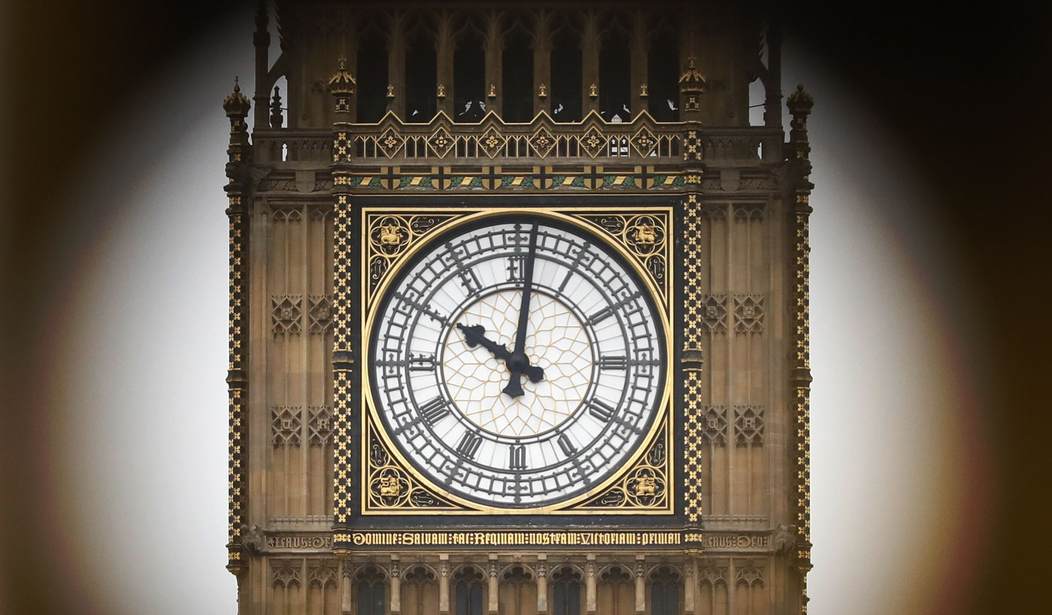The United Kingdom has opened an inquiry into what worked, what didn’t, and what can be done better in light of the experience the country had during the COVID pandemic.
Gee, what a concept.
They are at just the beginning stages, so we have no idea how it will turn out, but early indications are that it at least won’t be solely a whitewash.
Again, what a concept. Actually trying to learn something from experience rather than confirm one’s priors. It’s almost as if covering everybody’s asses isn’t the sole value.
The opening of the inquiry laid some cards on the table: nobody had a clue what they were getting into, and nobody was thinking through the consequences of what they were doing. Policymakers were contemplating then executing some of the most radical policies in at least decades, and nobody gave much thought to what they were doing.
“COVID planners gave ‘potentially massive’ lockdown impact ‘very little thought’…the COVID Inquiry has heard…‘there appears to have been a failure to think through the potentially massive impact on education and on the economy.’”https://t.co/LmNTBP8UB3
— Michael P Senger (@michaelpsenger) June 14, 2023
He [ Hugo Keith KC, counsel for the inquiry] told the inquiry: “Extraordinary though it may seem, given that it’s a word that’s forever seared in the nation’s consciousness, there was very little debate pre-pandemic of whether a lockdown might prove to be necessary in the event of a runaway virus, let alone how a lockdown could be avoided.
“Very little thought was given to how, if it proved to be necessary, something as complex, difficult and damaging as a national lockdown could be put in place at all.
“Equally, there appears to have been a failure to think through the potentially massive impact on education and on the economy in trying to control a runaway virus in this way.”
He said “the months and years that followed [the first lockdown], we all recall, saw death and illness on an unprecedented scale…”, noting that 226,977 people across the UK died with Covid recorded on their death certificate.
The COVID death toll is, of course, huge. But it is just a fraction of the total excess deaths due to COVID and the policies implemented to supposedly mitigate it. Almost nobody is talking about the fact, but the excess death toll in most countries of the world–at least those which followed lockdown strategies–is still running about 20% above baseline. Almost none of those excess deaths is from COVID, but rather from other health problems that stem from the policies intended to mitigate COVID’s impact.
Those are lockdown deaths, not COVID deaths.
He added: “The hospitality, retail, travel and tourism, arts and culture, and the sport and leisure sectors effectively ceased, even places of worship closed.
“As you know, for very many, what they had to deal with went far beyond the curtailment of their normal lives and involved bereavement, serious illness, deprivation, mental illness, exposure to violence at home, terrible financial loss, loneliness and many other forms of suffering.”
Keep in mind that at the time no public health agency in the world ever even contemplated lockdowns as a policy measure to be taken to mitigate pandemics, which is why nobody had prepared for the possibility. It’s not that the idea hadn’t been discussed in the past–the idea had been discussed and rejected.
This fact is rarely highlighted: after 9/11 a lot of work was put in to plan for bioterrorism, and a set of recommendations had been developed to deal with potentially deadly outbreaks. It’s just that when COVID came along the rulebook was tossed out and decisions were made on the fly, and many of those decisions were based upon the hideous policies being implemented in China.
The results to society have been devastating. The costs of lockdowns were enormous, and it is quite clear that the benefits have been minuscule. The “if it saves one life” crowd has ruined and cost lives.
“Huge, urgent and complex policy decisions were required to be taken in relation to shielding, employment support, managing disruption to schools, borders, lockdowns, and non-pharmaceutical interventions, restrictions, social restrictions, and, equally importantly, the profoundly unequal impact of the pandemic on the vulnerable and the marginalised,” he said.
“Few of those areas were anticipated, let alone considered in detail. Concerns about the impact of Covid restrictions were also raised by Steve Ford, representing the Association of Directors of Public Health who said that local health directors were ‘repeatedly excluded from key communications and guidance’.”
One major factor that influenced both policymaking and the distribution of costs was class: the laptop class paid disproportionately low costs and reaped disproportionately large benefits from lockdown policies. The costs were largely transparent to them; they don’t go to church, don’t work outside an office and hence can work from home, they could get things delivered to them by others who don’t have these luxuries, and get a larger share of their wealth from investments in major corporations that benefited from the policies.
People who didn’t have these benefits, and the people who ran small businesses that weren’t huge corporations, got screwed. If it weren’t for the costs of school closings to upper-middle class parents we might still be in lockdowns.
There is still a significant blackout in the MSM and from governments regarding the death toll from lockdowns, and the consequences from a subsequent breakdown in social norms. Crime has skyrocketed, kids have disappeared from the school system and are, effectively, missing, and social discord is nearing highs not seen in decades.
Social trust has been destroyed. And it need not have happened.







Join the conversation as a VIP Member